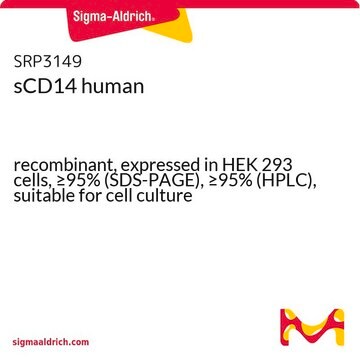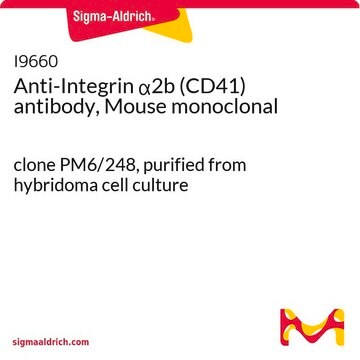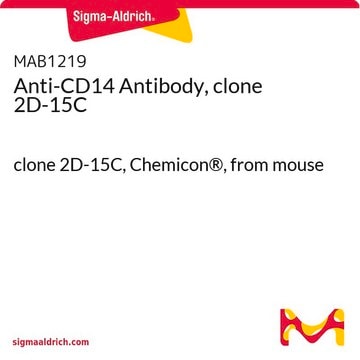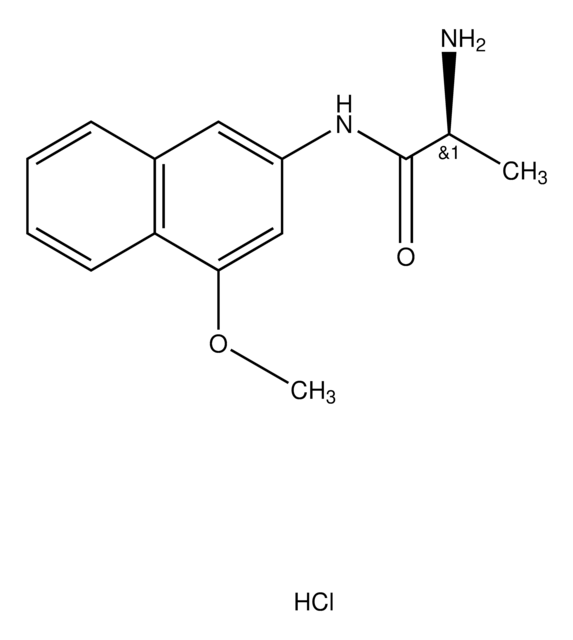5089
CD14 human
recombinant, expressed in E. coli, 0.5 mg protein/mL
About This Item
Produits recommandés
Source biologique
human
Produit recombinant
expressed in E. coli
Description
0.1 mg recombinant human CHD14 in 20 mM Tris-HCl buffer, containing NaCl, KCl, EDTA, L-arginine, DTT and glycerol.
Stérilité
Filtered sterilized solution
Pureté
≥90% (SDS-PAGE)
Forme
liquid
Conditionnement
pkg of 100 μg
Concentration
0.5 mg protein/mL
Technique(s)
cell culture | mammalian: suitable
Numéro d'accès
NP_000582
Conditions d'expédition
dry ice
Température de stockage
−20°C
Informations sur le gène
human ... CD14(929)
Application
Use this procedure as a guideline to determine optimal coating conditions for the culture system of choice.
1. Thaw CD14 and dilute to desired concentration using serum-free medium or PBS. The final solution should be sufficiently dilute so the volume added covers the surface evenly (1-10 μg/well, 6 well plate).
2. Add appropriate amount of diluted material to culture surface.
3. Incubate at room temperature for approximately 1.5 hours.
4. Aspirate remaining material.
5. Rinse plates carefully with water and avoid scratching bottom surface of plates.
6. Plates are ready for use. They may also be stored at 2-8 °C damp or air dried if sterility is maintained.
Séquence
Notes préparatoires
Code de la classe de stockage
10 - Combustible liquids
Classe de danger pour l'eau (WGK)
WGK 2
Point d'éclair (°F)
Not applicable
Point d'éclair (°C)
Not applicable
Certificats d'analyse (COA)
Recherchez un Certificats d'analyse (COA) en saisissant le numéro de lot du produit. Les numéros de lot figurent sur l'étiquette du produit après les mots "Lot" ou "Batch".
Déjà en possession de ce produit ?
Retrouvez la documentation relative aux produits que vous avez récemment achetés dans la Bibliothèque de documents.
Notre équipe de scientifiques dispose d'une expérience dans tous les secteurs de la recherche, notamment en sciences de la vie, science des matériaux, synthèse chimique, chromatographie, analyse et dans de nombreux autres domaines..
Contacter notre Service technique








